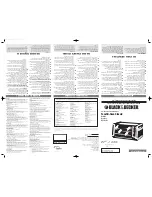
6 720 610 576 GB (02.05)
34
Maintenance
8.2
Description of servicing operations
The combustion performance must be checked before
and after any servicing work on the combustion and
burner components. Refer to section 7.2.
Check “Last fault stored”:
B
Select Service Function
.0
(see page 27 “Selecting
service function”).
There is a list of the fault codes in the Appendix (see
page 43.
To delete “Last fault stored”:
B
Turn temperature control
anti-clockwise as far as
the stop.
B
Press and hold the
button until the display
shows
[ ]
.
The last fault stored has now been deleted.
Checking the ionisation current,
Service Function 3.3
B
Select Service Function
3.3
(see page 27 “Selecting
service function”).
If the display shows 2 or 3, the ionisation current is OK.
If the display shows 0 or 1, the electrode assembly
(32.1, page 6) must be cleaned or replaced.
Domestic hot water
If the flow rate is too slow:
B
remove the domestic hot water heat exchanger and
replace,
-or-
B
descale with a descaling agent approved for use on
stainless steel.
B
Before removing the heat exchanger shut the inlet
valve and drain the hot water circuit.
B
Use new seals when replacing the heat exchanger.
Fig. 48
Primary Heat exchanger
There is a special accessory kit (no. 840) for cleaning
the heat exchanger, order no. 7 719 001 996.
B
Check control pressure on the air - gas mixer unit at
max. rated heat output using an electronic manome-
ter.
Fig. 49
B
Remove cleaning access cover (415, page 6) and
the metal plate below it, if present. Refer to fig. 2.
B
Unscrew condensation trap and place suitable con-
tainer underneath. Refer to fig. 50.
B
Remove the fan and the burner as described in the
text headed “Burner” (see page 35).
Fig. 50
7 181 465 330-06.1R
i
The heat exchanger should only be
cleaned if the control pressure is
2.2 mbar
(depression) or less.
6 720 610 332-69.1R
6 720 610 332-72.1R















































